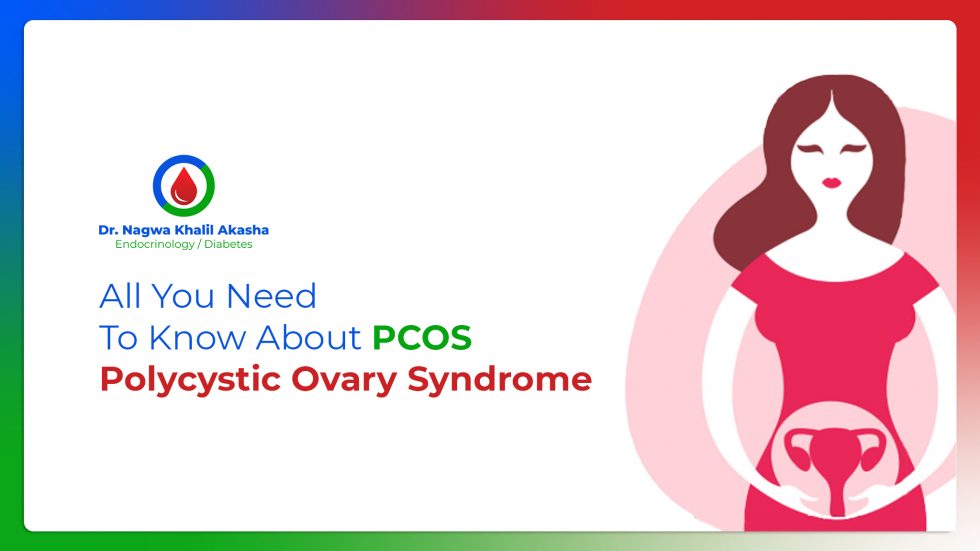Polycystic Ovary Syndrome (PCOS) Symptoms: Recognizing Hormonal Imbalances
Polycystic Ovary Syndrome, commonly known as PCOS, is a hormonal disorder that affects millions of women worldwide. It can cause a wide range of symptoms, including irregular periods, acne, weight gain, and fertility issues, among others. In this post, we will provide you with a comprehensive understanding of PCOS, including its symptoms, causes, and treatment options.
Understanding PCOS
PCOS is a condition that affects a woman's hormonal balance, causing three primary symptoms: irregular periods, elevated levels of male hormones, and the presence of cysts on the ovaries. While the exact cause of PCOS is unknown, it is believed to be caused by a combination of genetic and environmental factors such as insulin resistance, inflammation, and lifestyle factors.
What is PCOS?
As we mentioned earlier, PCOS is a hormonal disorder that can cause irregular periods, acne, weight gain, and fertility issues. PCOS can also cause a range of potentially serious complications, such as diabetes, high blood pressure, and endometrial cancer. If you are experiencing any of these symptoms, it is essential to consult with a healthcare provider for proper diagnosis and treatment.
Importance of PCOS Awareness
PCOS is a prevalent condition among women of reproductive age, and it's estimated to affect 1 in 10 women worldwide. Unfortunately, despite its high prevalence, PCOS is not a well-known or well-understood condition. Awareness is crucial, as the sooner PCOS is diagnosed, the sooner it can be treated, reducing the risk of long-term complications.
Statistics on PCOS
According to the latest statistics, around 10 million women worldwide are affected by PCOS. It's estimated that up to 70% of women with PCOS remain undiagnosed, which can lead to long-term complications such as diabetes and heart disease. Additionally, women with PCOS are at risk of developing endometrial cancer, with the risk increasing with age and obesity.
Types of PCOS
There are four types of PCOS, classified according to their hormonal profile:
- Insulin-resistant PCOS
- Inflammatory PCOS
- Post-pill PCOS
- Adrenal PCOS
Each type of PCOS is characterized by different hormonal imbalances, and treatment will vary accordingly. A healthcare provider can help diagnose which type of PCOS you may be experiencing.
Risk factors for PCOS
Several factors can increase your risk of developing PCOS, including:
- Family history of PCOS
- Obesity
- Insulin resistance
- Inactivity
- Unhealthy dietary habits
While these factors don't necessarily cause PCOS, they can increase your risk of developing the condition.
Recognizing Early Symptoms of PCOS
As we mentioned earlier, PCOS is a hormonal disorder that can cause several symptoms. If you notice any of the following signs, it's essential to consult with a healthcare provider:
- Irregular periods
- Acne
- Skin tags and dark patches of skin
- Hair loss on the scalp and excessive hair growth on the face, chest, and back
- Weight gain or difficulty losing weight
- Fertility issues
- Mood swings and depression
Diagnostic Tests for PCOS
If your healthcare provider suspects that you have PCOS, they may perform several diagnostic tests, including
- Pelvic ultrasound
- Blood tests for hormone levels
- Glucose tolerance test
- Physical exam and medical history
These tests can help determine the presence and severity of PCOS and can help your healthcare provider tailor your treatment plan accordingly.
Awareness and Prevention of PCOS
While there is no way to prevent PCOS, there are many ways to manage and reduce your risk of developing complications. Maintaining a healthy weight, eating a balanced diet, and getting regular exercise can help manage insulin levels, a common contributing factor to PCOS. Additionally, your healthcare provider may recommend hormonal birth control, which can help regulate periods and reduce the risk of endometrial cancer.
Early Detection of PCOS
Early detection is essential in managing PCOS effectively and reducing the risk of long-term complications. If you are experiencing any of the symptoms of PCOS, consult with your healthcare provider as soon as possible. Your healthcare provider can perform diagnostic tests, evaluate your symptoms, and provide comprehensive treatment options tailored to your individual needs.
Timely Treatment of PCOS
Effective treatment of PCOS will depend on the type of PCOS you have, the severity of your symptoms, and your individual health needs. Your healthcare provider may recommend lifestyle changes such as diet and exercise, hormone replacement therapy, or insulin-sensitizing medications such as metformin. They may also recommend fertility treatment options if you are trying to conceive.
Support and Resources for PCOS
If you have been diagnosed with PCOS, remember that you are not alone. There are many support groups and resources available to help you navigate this condition, including:
- The PCOS Awareness Association
- The Polycystic Ovary Syndrome Association
- The International Council on Infertility Information Dissemination
These organizations can provide you with information, support, and resources to help you manage your symptoms and navigate your treatment options effectively.
In Conclusion
PCOS is a hormonal disorder that affects millions of women worldwide. Early detection, diagnosis, and treatment are essential in managing PCOS effectively and reducing the risk of long-term complications. Consult with your healthcare provider if you are experiencing any of the symptoms of PCOS, and remember that there is support and resources available to help you navigate this condition and manage your symptoms effectively.
Image Sources:
Symptoms of PCOS:

PCOS Symptoms and Treatment:

PCOS Symptoms:

Polycystic Ovary Syndrome Symptoms:

Body Symptoms of PCOS

Komentar
Posting Komentar